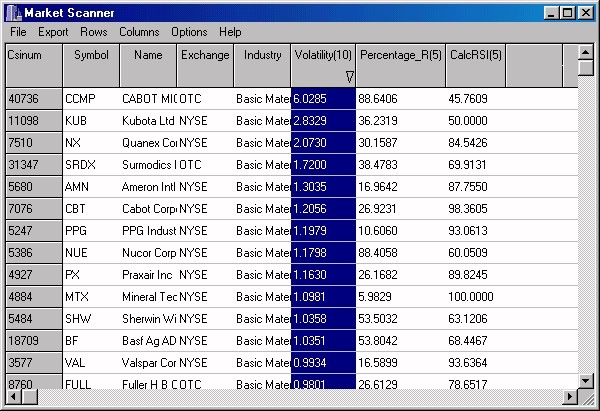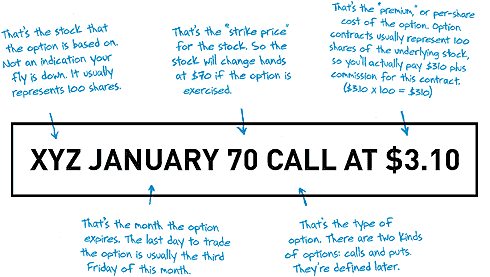Differences Between Stocks & Stock Options by
Post on: 1 Май, 2015 No Comment

Differences Between Stocks & Stock Options — Introduction
Find Out How My Students Make Over 87% Profit Monthly,
Confidently, Trading Options In The US Market!
Differences Between Stocks & Stock Options — Relationship between stocks and stock options
Options are derivative instruments based on stocks, funds, currencies, commodities, futures or index. Derivative instruments are trading instruments that derive their value from another security. This means that the value of options move up and down in reponse to changes in the price of their underlying securities and other variables. Other common types of derivative instruments are futures, warrants and swaps.
Stock options are derivative instruments that derive their value from their underlying stock, allowing investors to buy or sell those stocks between each other at specific prices. So, stock options are not the stocks themselves but are rather children of those stocks, allowing investors to benefit from movements in the stocks for a small price.
For example, a stock is trading at $10.
Owning a call option with a strike price of $10 allows you to buy that stock at $10 no matter what price it is in future. However, owning the option is not owning the stock. It only gives you the right to buy the stock at a specific price if you want to.
Owning a put option with a strike price of $10 allows you to SELL that stock for $10 no matter what price it is in future. However, owning the option is not the same as shorting the stock. It only gives you the right to sell the stock at a specific price if you want to.
The relationship between stocks and stock options is akin to the relationship between a house and an option to purchase. The option to purchase allows the buyer to buy the house at a fixed price no matter how much the value of the house appreciates at the time of actual purchase. The holder benefits from the appreciation through the option but does not actually own the house yet.
For the purpose of this tutorial, it suffice to know that stock options are NOT the stocks themselves but contracts to benefit from the right to buy or sell that stock. Since stock options are really only contracts, and not stocks themselves, it is not an asset you can own indefinitely because they expires after a certain period of time. After stock options expire, they evaporate and cease to exist. In this aspect, stocks are assets you can own whereas stock options are expenses if they expire out of the money.
In short, Stock Options are contracts to buy or sell the underlying stock
Differences Between Stocks & Stock Options — Trading Characteristics
The only similarity between Stocks and Stock Options is the fact that they can be bought and sold just like a stock. But that is where the similarity ends. Stock options behaves very differently from stocks and can be utilized in far more ways.
Explosive Profits
The ability to make leveraged profit is the reason why so many lucky options traders get rich quickly in options trading. In fact, when a stock moves 1%, its stock options could move by as much as 10%! Very aggressive options traders using money that they can afford to lose could as much as double their money with the underlying stock moving only about 10%! This kind of leveraged profits used to exist only in micro-cap stocks but now, with stock options, anyone can make that kind of profits on any stocks.
Profit to Downside Without Shorting or Margin

To profit when a stock drops, stock traders can only short the stocks, incurring unlimited losses and margin if the stock rises instead. In fact, shorting a stock is possible only with a margin enabled account. With options trading. anyone can profit from a drop in the underlying stock just by buying a put option. Put options are stock options that appreciates as the underlying stock goes down. Buying put options incurs no margin with losses limited only to the price paid for the put options.
Profit in All Directions
Stocks only profit when they go up while profit is possible in every possible direction in options trading by combining various stock options of various strikes or expiration. In fact, it is possible to make a profit in more than one direction at once using options strategies such as Covered Calls. Such versatility greatly increases the chances of making money.
Expiring Worthless
The reason why so many options traders lose all their money in a very short period of time because stock options expires worthless if the underlying stock did not move in accordance to expectation. When you purchase stocks, you can hold on to it for as long as you want to if the stock did not go up. Eventually, you could still make a profit if the stock go back up, even if it takes a few years. With stock options, if the stock did not move as predicted by expiration, all the money put towards buying those options would be lost. This characteristic makes options trading a high profit and high risk activity when speculating unhedged.
Hedging Tool
Apart from being a leveraged speculative tool, stock options can also be used as a hedging tool to limit the risk of both stocks and options trading. In fact, stock options can be used to completely hedge the downside risk in stocks through strategies such as the Protective Put.
Differences Between Stocks & Stock Options — Conclusion
The purpose of this tutorial is to outline the main differences between stocks and stock options in terms of what they actually are and how different stock trading and options trading are. It is recommended for you to now move on to our Stock Options tutorial for an indepth study.














